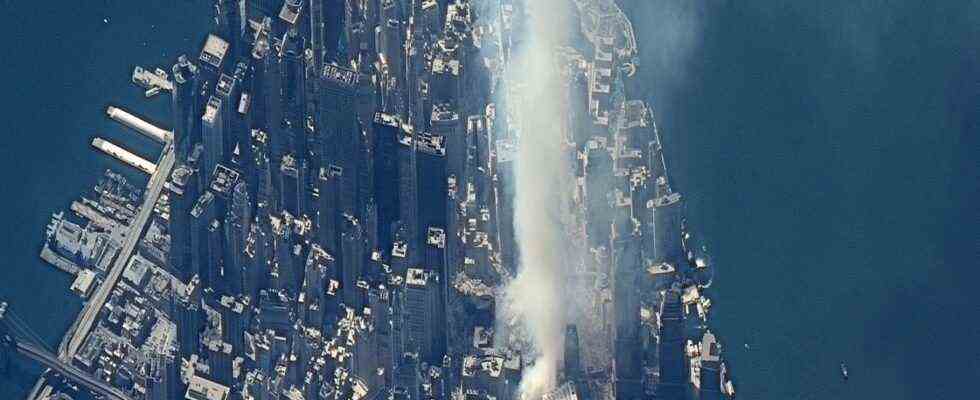Status: 11.09.2021 10:32 a.m.
The terrorist attacks of September 11th shook the western world – including the economy. After all, it was the towers of the world trade center that collapsed. What were the consequences of the attack on the US economy?
September 11, 2001. It is initially a quiet day on the Frankfurt Stock Exchange. The world’s largest mobile phone manufacturer Nokia has increased its profit forecasts, there is a good mood. Then the first rumors about “an airplane” – and uncertainty in the dealership. Extract from a live TV switch from back then:
Do you already notice it in the sales? “-” No, there is still no pressure to sell in the market. “-” The opening is being postponed in New York. “-” Unusual, right? “-” Yes, yes.
At around 3 p.m., the leading German index, the DAX, plunged into the abyss, losing more than ten percent in the meantime. Lufthansa shares: minus 20 percent. Reinsurers: under heavy pressure. And the dealers are shocked: “The reaction here in the dealership is of course fatal, so everyone is horrified,” one of them describes the mood.
Attack on symbol for the western (commercial) world
September 11th became the end of an era. Nobody wanted to believe in limitless growth any more, the world was becoming increasingly vulnerable. Only at the turn of the millennium did the hyped Internet stocks crash. A year later with the terrorist attacks on the World Trade Center, the world trade center, another blow.
“The World Trade Center is the symbol for the western world, for the stock exchange, for the trading center of the western world,” says Ascan Iredi from DZ-Privatbank today. “It was a perfidious idea behind it to weaken the belief in the freedom of economic activity and to hit it right in the heart.”
Exchange rate losses quickly offset
As a result, the stock exchanges tried to cover it up. On the face of it, prices recovered quickly, also because the central banks lowered interest rates and thus stimulated the economy. As early as November 2001, the price dent on the New York floor was ironed out.
The real consequences only became apparent later, says equity strategist Iredi. “That was very, very much money that the US subsequently took in hand. It’s about Iraq, about Afghanistan. The whole western world has embarked on a war here, which of course also cost a lot of money . ” Iredi sees it as money that would have been better invested elsewhere. In bridges, roads – in infrastructure. Also for the benefit of the company.
Staggered, but not knocked over
So did the 9/11 attacks permanently weaken the US economy? Exchange trader Arthur Brunner sees it differently: “Politically, the USA may have lost influence, but they are concentrating on their own economic power. There they are dominant in many areas. Everyone Googles, everyone orders from Amazon. And there you know how the influence the USA is. “
The attack on the World Trade Center? The terrorists succeeded. The attack on economic power and world trade? Certainly not.
September 11th and the consequences for the financial markets
Victor Gojdka, ARD stock exchange studio, September 10, 2021 3:16 p.m.

